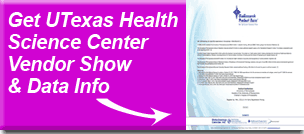A team of researchers at the University of Texas Health Science Center San Antonio have recently discovered a possible explanation for the high rate of pneumonia in the elderly. Community-acquired pneumonia is the leading cause of death among the elderly and this new UT research may have revealed a possible treatment.
The research was led by Pooja Shivshankar, research scientist in microbiology and immunology, and Carlos Orihuela, assistant professor of microbiology and immunology. This latest research was one of several NIH funded research projects conducted by these scientists involving the study of pneumonia in the elderly. The total NIH funding received by this lab for pneumonia research totaled over $550,000.
The study found that certain senescent lung cells, (cells that were supposed to be destroyed due to DNA damage but weren't) were 5 to 15 times more vulnerable to infection by pneumonia. Additionally, these senescent cells can increase the susceptibility of younger cells around them. Many elderly people have senescent cells in their lungs which may be caused by aging or by chronic obstructive pulmonary disease (COPD).
Senescent cells often become highly inflamed and have a higher number of proteins than do normal cells. Bacteria can use these additional proteins as well as the abnormal inflammation to more easily infect the cell and propagate in the bloodstream. Additionally, the senescent cells can spew out molecules that will inflame nearby cells while simultaneously making them spew the inflammatory compound. The result is a chain reaction that greatly increases the risk and severity of pneumonia infection.

(Image of non-senescent lung cells courtesy of the Wise Laboratory)
This new insight may offer a new method to fight this kind of pneumonia infection. Dr. Orhuela summed up the therapeutic potential of his research in a UT press release saying, “We can’t stop aging, but our findings suggest that preventing inflammation might be the next best thing, this opens up possibilities for anti-inflammatory drugs as treatments for pneumonia.” His research may help fight the problem of severe pneumonia in the elderly.
If you are a University of Texas researcher interested in learning about the latest science supplies in your field, or a laboratory supplier looking for networking opportunities with top university researchers, attend Biotechnology Calendar, Inc.'s Bioresearch Product Faire™ at the University of Texas Health Science Center San Antonio on September 29, 2011.
For more information about our upcoming vendor show and additional funding statistics for the UT Health Science Center, click the button below.


